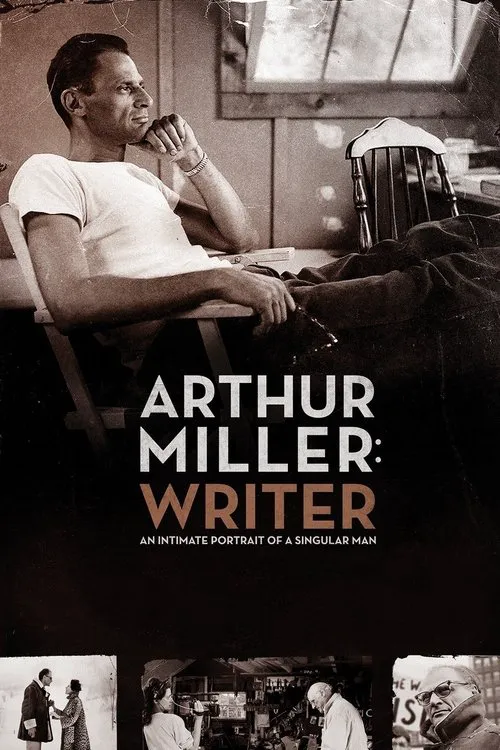Arthur Miller: Writer

Plot
The life of Arthur Miller is a fascinating testament to the power of the human spirit, a life that is both deeply personal and profoundly public. A towering figure in 20th-century theater, Miller's work remains a timeless and potent force, capable of evoking empathy and understanding in audiences worldwide. His story is as complex and multifaceted as the man himself, a journey marked by triumph and tragedy, creativity and controversy. Through the eyes of his daughter Rebecca Miller, a filmmaker and artist in her own right, Arthur Miller: Writer offers a nuanced and deeply personal portrait of a man whose life was both a reflection of the era in which he lived and a profound commentary on the human condition. Miller's early life was marked by a strong work ethic and a deep sense of social justice, instilled in him by his Jewish parents, Daniel and Isabelle. Growing up in Brooklyn, New York, Miller was heavily influenced by the tumultuous landscape of the Great Depression and World War II, themes that would later become hallmarks of his writing. After dropping out of college, Miller began working as a merchant marine and later as a writer in advertising before eventually turning to playwrighting. The success of his first play, The Man Who Had All the Luck, marked the beginning of a lifelong commitment to the theater, a craft that would bring him both acclaim and notoriety. As Miller's fame grew, so did the scrutiny surrounding his views on politics and society. The rise of the House Un-American Activities Committee (HUAC) in the late 1940s and early 1950s brought Miller into the crosshairs of the McCarthyite witch hunt, with accusations of communism and disloyalty dogging him for years. This tumultuous period, marked by public hearings and Congressional investigations, is a dark chapter in Miller's life, and one that left an indelible mark on his personal and professional world. However, it was not Miller's tumultuous relationship with HUAC that would define him; rather, it was his marriage to the enigmatic and mercurial Marilyn Monroe. Their marriage, marked by both deep affection and explosive arguments, is a testament to the complex and often contradictory nature of Miller's personality. Monroe, a Hollywood icon and one of the most beloved stars of the 1950s and '60s, brought a spark of glamour and wit into Miller's life, but also a deep well of emotional pain and insecurity. Through interviews with those who knew the couple, including Monroe's own sister Bernadette, and Miller's own reflections on their relationship, Arthur Miller: Writer paints a vivid picture of their love affair, one marked by both passion and heartbreak. Throughout his life, Miller's writing remained a constant source of solace and creative expression. From the searing indictment of modern America that is Death of a Salesman to the haunting historical drama of The Crucible, Miller's plays are characterized by their lyricism, their depth of character, and their unwavering commitment to the human condition. His writing is a reflection of his own values and principles: a deep respect for individualism, a fierce commitment to justice and equality, and a profound empathy for those who suffer. As his daughter Rebecca Miller so ably demonstrates, Arthur Miller: Writer is more than just a biographical sketch or a critical study of the playwright's work. Rather, it is a deeply personal and profoundly moving portrait of a man whose life was marked by both triumph and tragedy, by both creativity and controversy. Through her unique perspective and her masterful filmmaking skills, Miller offers a nuanced and deeply empathetic exploration of her father's life, one that is at once illuminating and heartbreaking. Ultimately, Arthur Miller: Writer is a testament to the transformative power of art, a reminder that the human spirit is capable of enduring even the darkest of circumstances. Miller's story, marked by both triumph and tragedy, serves as a powerful reminder of the importance of courage, compassion, and creativity in the face of adversity, and serves as a testament to the enduring power of the human spirit.
Reviews
Recommendations



